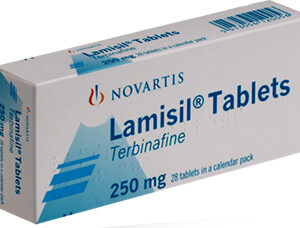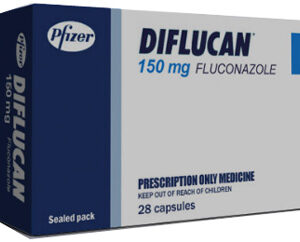Diflucan Overview
Diflucan, known generically as fluconazole, is a pharmaceutical agent belonging to the antifungal class of medications. It is primarily designed to combat various fungal infections and is well-known for its efficacy against Candida infections such as thrush and systemic candidiasis. It aims to disrupt the process of fungal cell membrane formation, thereby halting the growth of the infecting organism.
Medication Utilization
Diflucan serves multiple purposes in the realm of medical treatment. It is helpful in the management and alleviation of specific fungal infections which can manifest in different parts of the body. Patients may be prescribed Diflucan for conditions like vaginal candidiasis, oropharyngeal and esophageal candidiasis, as well as cryptococcal meningitis. Additionally, it can be used as a prophylactic measure in individuals with compromised immune systems to thwart the onset of fungal infections.
Dosing Details
The dosing regimen of Diflucan is customized to the individual’s condition, age, and response to treatment. For adults tackling vaginal candidiasis, a single oral dose of 150 mg may typically be prescribed. Oropharyngeal candidiasis generally requires 200 mg on the first day, followed by 100 mg once daily. Dosages can be adjusted by healthcare providers based on the severity of the infection and patient’s response to the initial treatment.
Administration Guidelines
Diflucan can be ingested with or without nourishment. If it’s offered in a liquid form, it’s paramount to shake the bottle well before use and measure the precise quantity with a specialized dose-measuring spoon or device. Tablets or suspension should be taken according to the prescribed schedule to optimize therapeutic results. It’s critical to complete the full course of treatment, even if symptoms dissipate, to fully eradicate the infection.
Cautions and Alerts
Before starting on Diflucan, it’s essential to reveal any known allergies to fluconazole, other azole antifungal drugs, or any inactive ingredients the medication may contain. Patients with a history of liver disease, kidney disease, or heart rhythm issues should approach this treatment with caution, as Diflucan can have implications on these conditions. Pregnant women should only use this medication when clearly needed, and it’s a necessity to discuss the potential risks and benefits with a healthcare provider.
Potential Drug Synergies
Fluconazole can interact with numerous other drugs, leading to unintended side effects or altered drug effectiveness. Noteworthy interactions involve drugs such as warfarin, certain anti-seizure medications, and drugs processed by certain liver enzymes. It is crucial to discuss with healthcare professionals about any other medications, including herbal products and supplements, to prevent adverse drug interactions.
Adverse Reactions
Users of Diflucan may experience various side effects, though many individuals experience minor or no symptoms. Common side effects encompass nausea, headache, dizziness, and abdominal pain. Serious side effects are rare but can include liver disease symptoms, severe skin reactions, and irregular heartbeats. In the event of severe reactions, immediate medical attention is required.
Excess and Forgotten Doses
In instances where an overdose is suspected, urgent medical attention is warranted. Symptoms of an overdose might include hallucination or erratic behavior. If a dose is skipped, it should be taken as soon as remembered unless it’s nearing the time for the next scheduled dose. In such cases, the missed dose should be bypassed to maintain a regular dosing schedule. It is important not to double the dose to catch up.
Storing Instructions
Proper storage of Diflucan is vital for maintaining its efficacy and safety. The medication should be stored at room temperature, away from light and moisture. The liquid form should not be frozen and should be discarded after 14 days. Medications should be kept out of reach of children and pets to prevent accidental ingestion.
Questions Answered
Particular queries arise frequently from individuals prescribed Diflucan. Patients often question the duration of time required for the medication to show results, which can vary based on infection severity and type. The safety of alcohol consumption during treatment is also a common concern, and it is generally advised to avoid alcohol due to the increased risk of liver damage. Consulting with a healthcare practitioner can address these and any other concerns one might have about using Diflucan.




Reviews
There are no reviews yet.